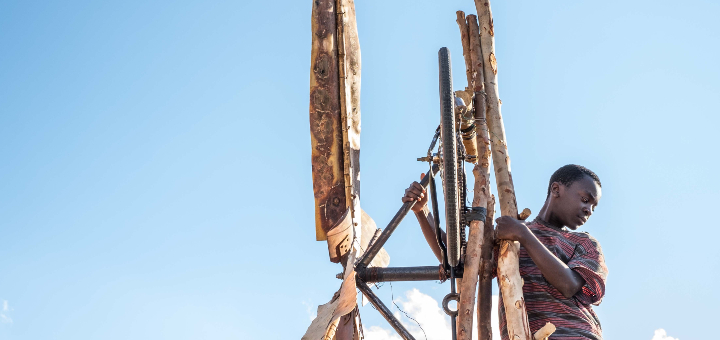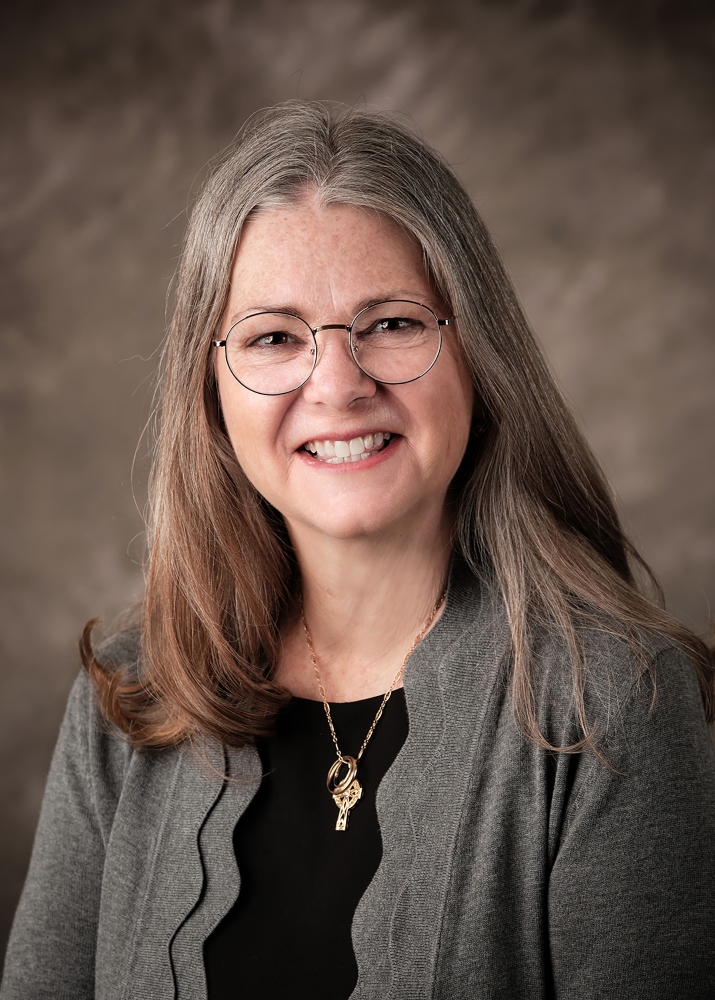
 Photo courtesy of Netflix. All rights reserved. Used with permission.[/caption]
New at Netflix is a compelling film that offers a peek into how innovation has the potential to overcome life's some of most challenging problems. Inspired by the bestselling book The Boy Who Harnessed the Wind: Creating Currents of Electricity and Hope by William Kamkwamba, this new Netflix original film relays the heart of a true story of poverty, family, grit, and determination. If you're looking for a film to screen with your older children this weekend, The Boy Who Harnessed the Wind might be a great option.
Thirteen-year-old William, brilliantly portrayed by Maxwell Simba, lives with his family in rural Malawi. In a village focused around farming, families like William's make their livelihood -- and in fact assure their survival -- on the land they farm. William, a bright teen with obvious engineering skills, dreams of going to school as his older sister did, but his poor family struggles to raise his tuition. That same sister struggles with her own deep desire for advanced education but has to compromise and find a way to move forward when her dream is denied her.
We get a peek into the rhythm of life in William's home and village before we're plunged into political upheaval and traumatic weather that brings with them deadly impact. Ultimately, William's ingenuity may provide a solution, but he will first have to face off with his hard-headed father, Trywell. Trywell, played by Chiwetel Ejiofor who does double duty as writer-director, seems to have his family's best interest at heart but cannot overcome his own desperation enough to recognize that William's book learning and inherent resourcefulness may just save the day.
I loved The Boy Who Harnessed the Wind for many reasons. While I have not been to Malawi, last year, I had the great privilege of traveling in drought-stricken regions of Kenya. There, I met families who scratch out an existence on their land and lead their livestock miles to fresh water each day, simply to put food on their tables. In a sense, with this frame of reference in mind, Boy felt a bit too "clean" to me. But in the faces of William and Trywell, I spotted some of the same determination and frustration I saw in the eyes of those families I met last year.
We who live in homes where we can turn on a tap and readily access clean water may have a hard time imagining a family who would pray for rain simply to put supper on the table. We who have access to free education for our children may not be able to fathom a family whose children don't have that same right. And we who deal daily with "first world" issues, may not be able to comprehend living in a region where political upheaval and repressive regimes rule the day.
For us, this film provides an opportunity to learn and to broaden our horizons. I'll admit that I personally had to look up Malawi on a map to discover its exact location. But despite our different perspective, we also have the opportunity to recognize commonalities: parents' deep desire to protect their children, children's desire to pursue their dreams, and the potential within each of us to be a force for change and for good.
There are challenging moments in The Boy Who Harnessed the Wind, moments of pain, violence, suffering and death. But ultimately, in a spoiler alert I feel comfortable sharing because the film's title sorts of gives it away, there is perseverance and triumph. And even though we may turn on the film knowing what the eventual outcome may be, in the "getting there," there is beauty, wisdom, character and grace.
Find The Boy Who Harnessed the Wind on Netflix.
Photo courtesy of Netflix. All rights reserved. Used with permission.[/caption]
New at Netflix is a compelling film that offers a peek into how innovation has the potential to overcome life's some of most challenging problems. Inspired by the bestselling book The Boy Who Harnessed the Wind: Creating Currents of Electricity and Hope by William Kamkwamba, this new Netflix original film relays the heart of a true story of poverty, family, grit, and determination. If you're looking for a film to screen with your older children this weekend, The Boy Who Harnessed the Wind might be a great option.
Thirteen-year-old William, brilliantly portrayed by Maxwell Simba, lives with his family in rural Malawi. In a village focused around farming, families like William's make their livelihood -- and in fact assure their survival -- on the land they farm. William, a bright teen with obvious engineering skills, dreams of going to school as his older sister did, but his poor family struggles to raise his tuition. That same sister struggles with her own deep desire for advanced education but has to compromise and find a way to move forward when her dream is denied her.
We get a peek into the rhythm of life in William's home and village before we're plunged into political upheaval and traumatic weather that brings with them deadly impact. Ultimately, William's ingenuity may provide a solution, but he will first have to face off with his hard-headed father, Trywell. Trywell, played by Chiwetel Ejiofor who does double duty as writer-director, seems to have his family's best interest at heart but cannot overcome his own desperation enough to recognize that William's book learning and inherent resourcefulness may just save the day.
I loved The Boy Who Harnessed the Wind for many reasons. While I have not been to Malawi, last year, I had the great privilege of traveling in drought-stricken regions of Kenya. There, I met families who scratch out an existence on their land and lead their livestock miles to fresh water each day, simply to put food on their tables. In a sense, with this frame of reference in mind, Boy felt a bit too "clean" to me. But in the faces of William and Trywell, I spotted some of the same determination and frustration I saw in the eyes of those families I met last year.
We who live in homes where we can turn on a tap and readily access clean water may have a hard time imagining a family who would pray for rain simply to put supper on the table. We who have access to free education for our children may not be able to fathom a family whose children don't have that same right. And we who deal daily with "first world" issues, may not be able to comprehend living in a region where political upheaval and repressive regimes rule the day.
For us, this film provides an opportunity to learn and to broaden our horizons. I'll admit that I personally had to look up Malawi on a map to discover its exact location. But despite our different perspective, we also have the opportunity to recognize commonalities: parents' deep desire to protect their children, children's desire to pursue their dreams, and the potential within each of us to be a force for change and for good.
There are challenging moments in The Boy Who Harnessed the Wind, moments of pain, violence, suffering and death. But ultimately, in a spoiler alert I feel comfortable sharing because the film's title sorts of gives it away, there is perseverance and triumph. And even though we may turn on the film knowing what the eventual outcome may be, in the "getting there," there is beauty, wisdom, character and grace.
Find The Boy Who Harnessed the Wind on Netflix.
Copyright 2019 Lisa M. Hendey
About the Author

Lisa M. Hendey
Lisa M. Hendey is the founder of CatholicMom.com, a bestselling author and an international speaker. A frequent radio and television guest, Hendey travels internationally giving workshops on faith, family, and communications. Visit Lisa at LisaHendey.com or on social media @LisaHendey for information on her speaking schedule or to invite her to visit your group, parish, school or organization. Visit Lisa's author page on Amazon.com.


.png?width=1806&height=731&name=CatholicMom_hcfm_logo1_pos_871c_2728c%20(002).png)
Comments